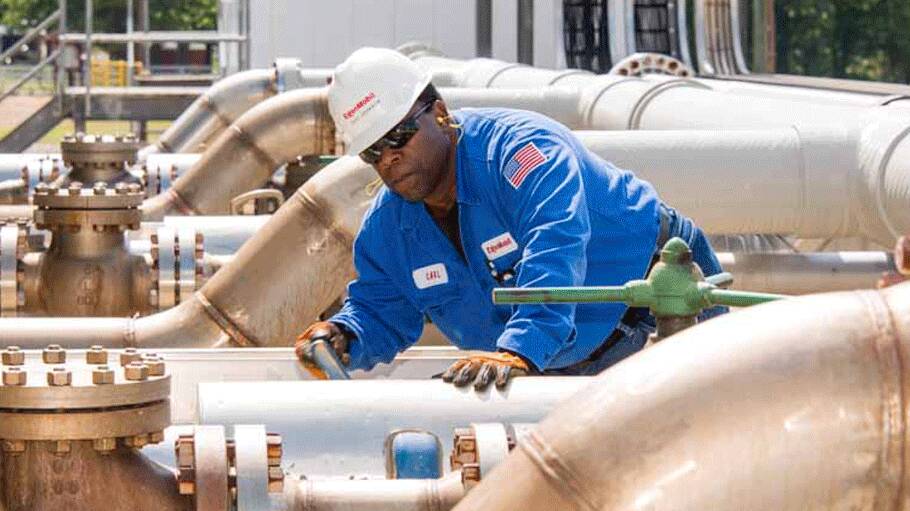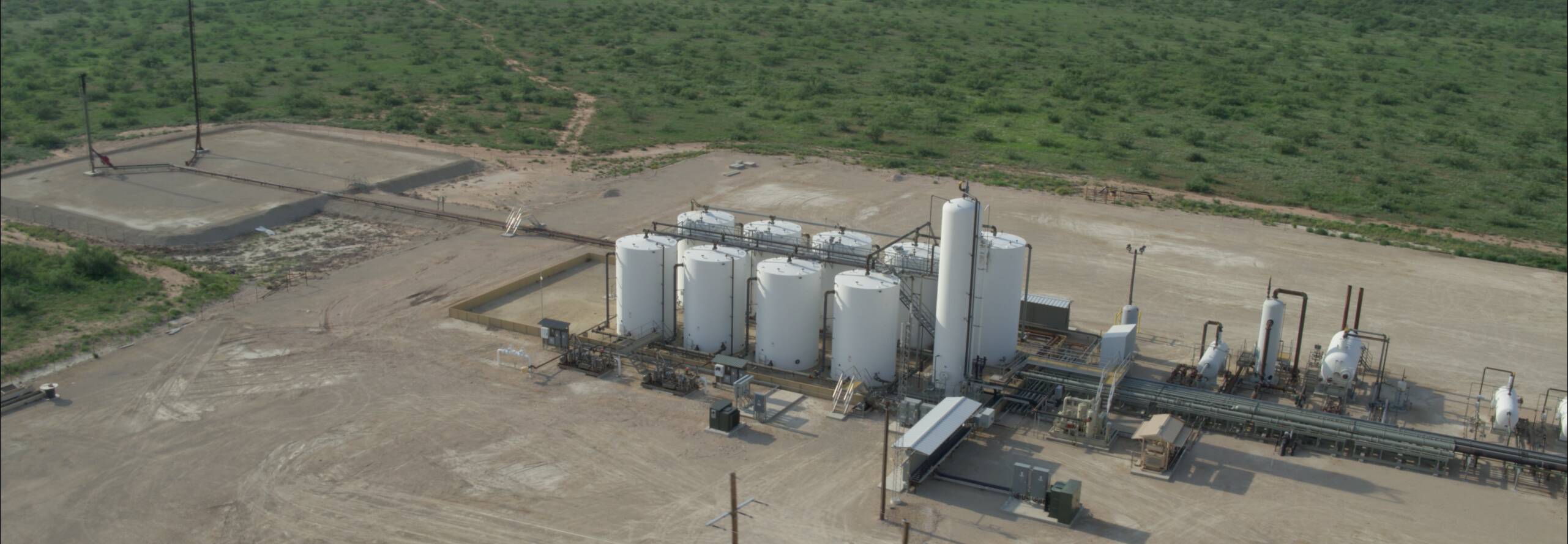selected item
Certified gas pilot to help our customers meet environmental goals
For one, the technologies that enable producers to monitor oil and gas fields – and thus detect and fix leaks of methane – have continued to advance. At the same time, as utilities and other buyers are seeking to meet their emissions goals, a market has begun to develop for “certified natural gas.” Also called “differentiated gas,” certified gas is natural gas that has been assessed as being produced with effective methane emissions management, and could sell for a premium.
But one thing hasn’t changed: ExxonMobil’s commitment to reduce methane emissions. This week, we announced a pilot project with MiQ to certify about 200 million cubic feet a day of natural gas produced at our Permian Basin facilities at Poker Lake, New Mexico, as early as the fourth quarter this year. We are proud to be the first Permian operator, and the first integrated energy company, to make such an announcement. If markets begin incentivizing lower methane emissions, on top of the regulatory approach we also support, that could be good news for more rapid methane emissions reductions.
While the pilot project is an initial step, it does target more than 10 percent of ExxonMobil’s current natural gas production from the Permian Basin while also providing us with a better understanding of the growing interest in certified gas from a commercial perspective. We are working towards expanding certification to include other Permian Basin production and other shale production areas, including Appalachia and Haynesville.
So how will it work? MiQ, an independent non-profit, has developed a framework whereby an independent auditor assesses a company’s operations at the facility or platform level using the MiQ Standard, and assigns a grade. This approach transparently and consistently assesses the facility for the methane intensity of natural gas (the amount of emissions per volume of gas produced), technology deployment for leak detection and repair, and emissions mitigation practices.
Such a third-party-accredited system benefits both buyers and sellers. Buyers receive an “apples-to-apples” comparison between producers, while sellers obtain a way to credibly market their gas to buyers interested in certified gas. We are excited to launch this certified gas pilot for several reasons.
First, it is a natural extension of our longstanding commitment to reducing methane emissions in our operations. ExxonMobil exceeded its goal to reduce methane emissions by 15 percent by year-end 2020 compared to 2016 levels. We have conducted more than 23,000 methane leak surveys across more than 9,500 sites and eliminated all high-bleed pneumatic devices across our U.S. unconventional production. We also have announced plans to reduce our upstream methane intensity by up to half by 2025 compared to 2016 levels, which is expected to result in a 40 to 50 percent decrease in ExxonMobil’s upstream absolute methane emissions globally.
ExxonMobil is well-positioned to offer certified natural gas to the market. Due to our efforts to minimize emissions in operational design, to develop and deploy new technologies to find and fix fugitive emissions, and to have practices and employee training programs in place that focus on emissions reduction, we expect the certified natural gas production from Poker Lake to receive a competitive grade under the MiQ Standard.
Additionally, while the market for certified gas is only just emerging, it is expected to grow rapidly. Based on our analysis, we anticipate that by year-end 2022, about 10 percent of U.S. natural gas production may be certified in some manner, as buyers such as utility companies increasingly look for opportunities to meet emissions-related goals, both voluntary and mandated.
ExxonMobil continues to believe methane regulations are needed to accelerate industry-wide methane reductions forward. We support the direct federal regulation of industry methane emissions and have offered a regulatory framework that explained the various industry emissions sources and cost-effective methods to control them.
But we also believe that needed change will occur faster if markets are supportive. We are proud to be a leader in this effort.
Explore more
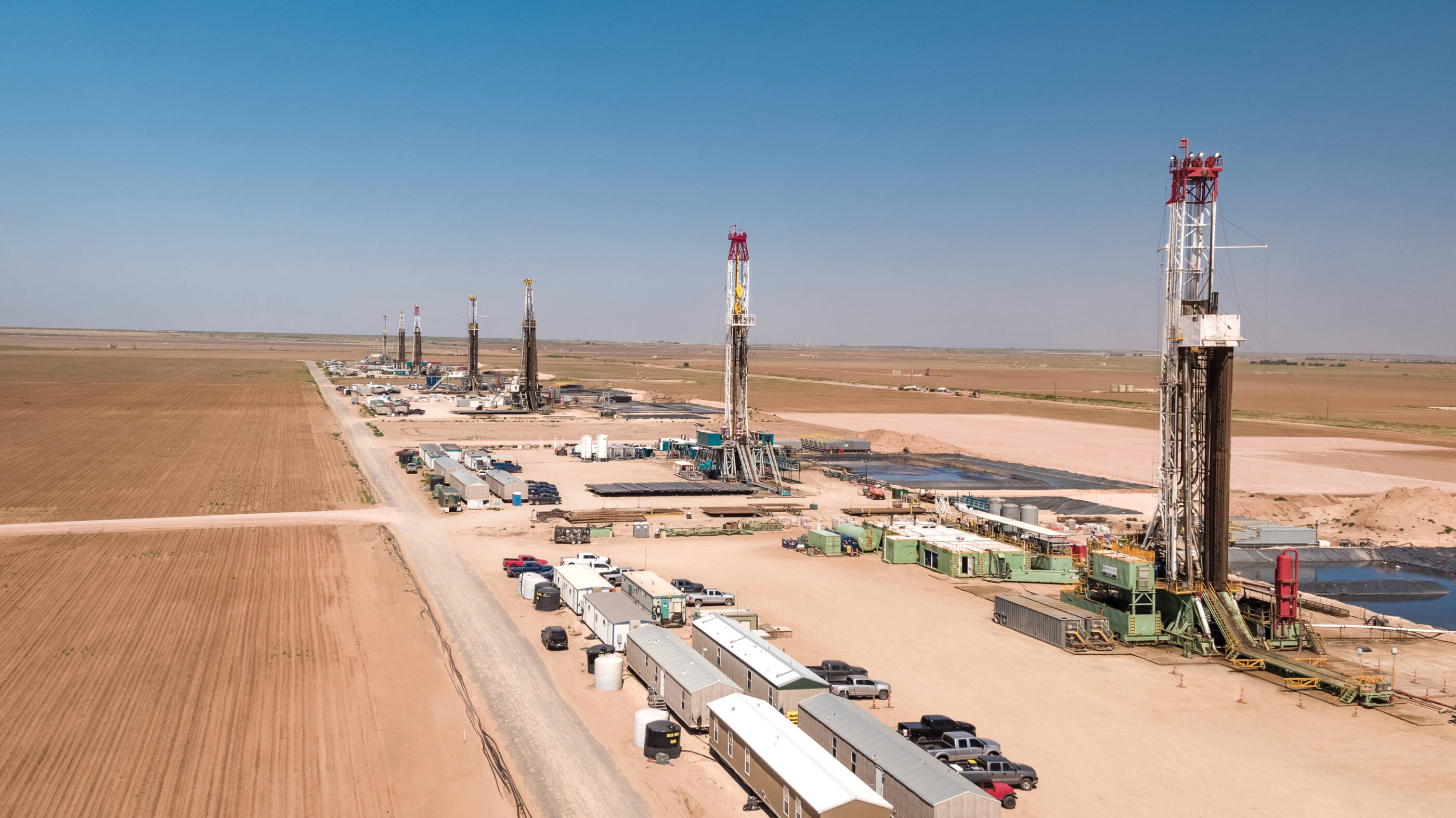
Our purpose in the Permian
Oil and natural gas are fundamental to modern life, from heating homes and filling gas tanks to generating electricity and providing the chemical building blocks for plastics. As one of the most active operators across the Permian Basin – a vast area roughly the size of Kansas that's spread across southwest Texas and southeast New Mexico – ExxonMobil is working to increase global energy supplies at a time when demand for reliable energy is growing.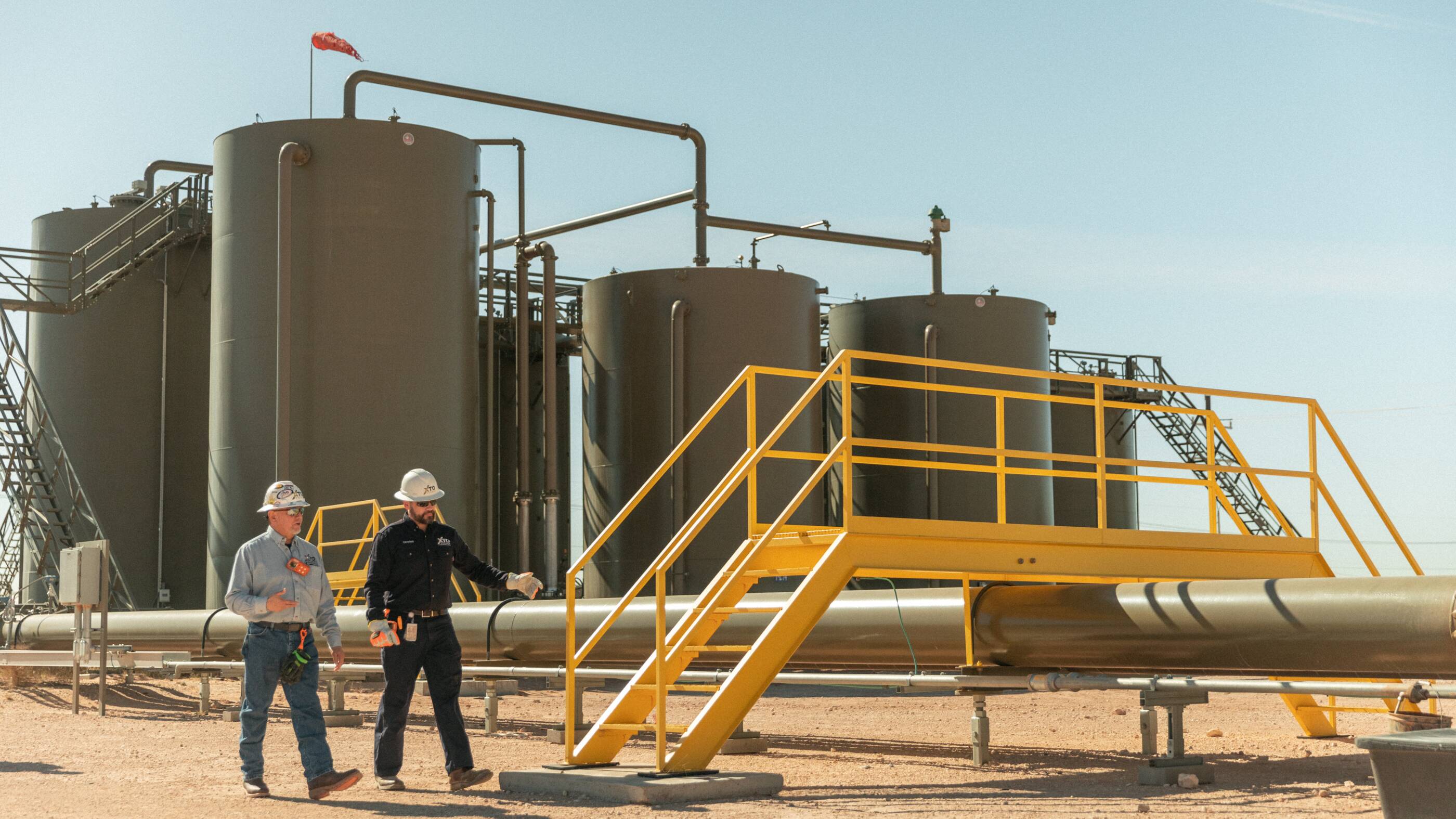
Certifying natural gas on a pathway to a lower-emission energy future
In 2021, ExxonMobil became the first integrated energy company to announce participation in a program to certify natural gas production through a pilot at Poker Lake, New Mexico, a key area of its Permian Basin operations, using standards developed by MiQ, a nonprofit organization.
All in on industry initiative aiming for zero methane emissions
Reducing methane emissions is a cornerstone of ExxonMobil’s net-zero by 2050 (Scope 1 & 2) ambition. That’s why we support the Aiming for Zero Methane Emissions Initiative announced last week by the Oil and Gas Climate Initiative (OCGI).
The global methane pledge
In September, the U.S. and European Union announced a Global Methane Pledge to reduce methane emissions by 30% below 2020 levels by 2030. More than 30 nations have now joined the Pledge, and more could be announced at the upcoming COP26 climate summit in Glasgow, Scotland.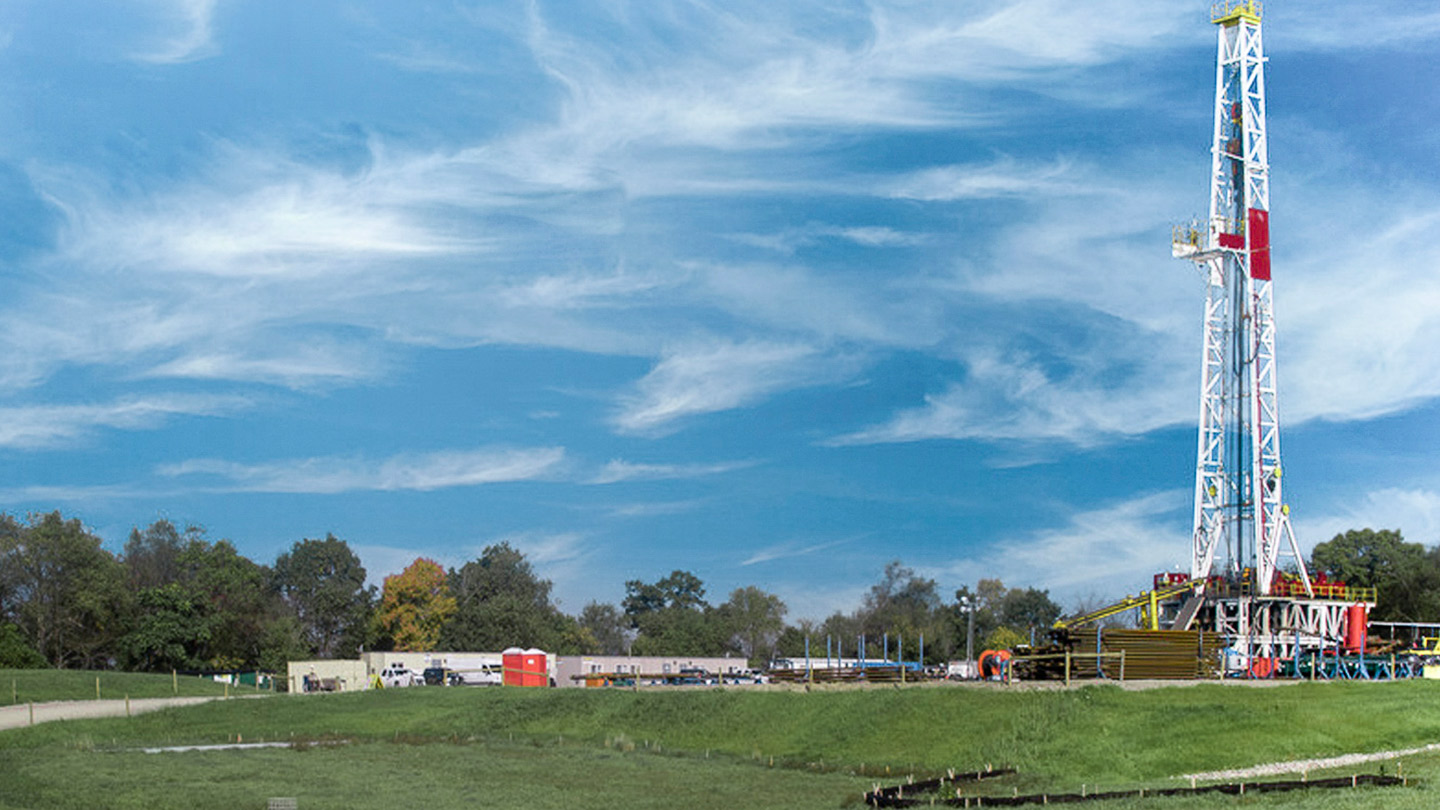
When it comes to methane, better regulatory approach needed
There has been a strong regulatory reform effort over the last few years in the U.S. that has spurred investment and economic growth. As our Chairman and CEO Darren Woods has noted, sound tax and regulatory policies help foster pro-growth business climates.